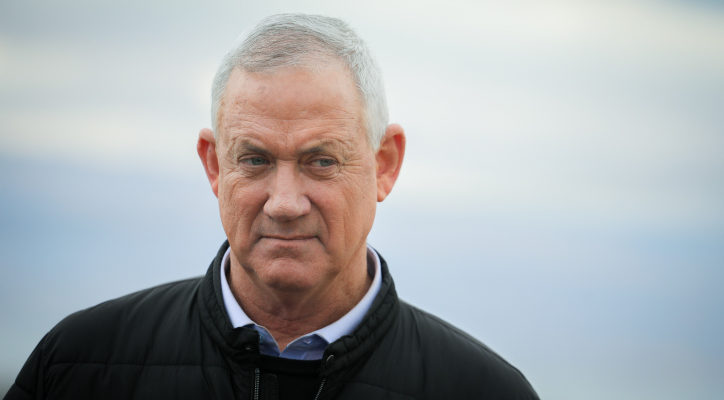After wooing the support of the Arab Joint List and Avigdor Liberman’s party, Netanyahu’s primary challenger Benny Gantz was chosen by Rivlin to try to form a new Israeli government.
By Associated Press
Israel’s president on Sunday said he has decided to give Blue and White’s Benny Gantz the first opportunity to form a new government following an inconclusive national election this month.
President Reuven Rivlin’s office announced his decision late Sunday after consulting with leaders of all of the parties elected to parliament.
The decision raises questions about Prime Minister Benjamin Netanyahu’s political future.
Netanyahu’s Likud emerged as the largest party in the March 2 election, Israel’s third in under a year. But with his smaller religious and Zionist allies, he received the support of only 58 lawmakers during Sunday’s consultations, leaving Likud three seats short of the required majority in parliament.
Netanyahu’s opponents, representing a slim 62-seat majority, recommended to Rivlin on Sunday that Gantz be named the prime minister-designate. However, the opposition is deeply fragmented — with the Arab Joint List and Avigdor Liberman’s Yisrael Beitenu, a Zionist party, among them — giving Gantz slim odds of being able to cobble together a government.
Once formally tapped, Gantz will now have a month to cobble together a governing coalition.
Rivlin is set to meet with Netanyahu and Gantz for an emergency meeting in hopes of breaking the deadlock that has paralyzed the political system for the past year and could threaten the country’s response to the coronavirus crisis.
Netanyahu, in his caretaker role, has invited Gantz to join him in an emergency government. Gantz has left the door open to such an arrangement, but also dismissed the offers.
Facing a difficult decision, Rivlin summoned the two men to his residence late Sunday in hopes of breaking the deadlock. Earlier, he pushed for a power-sharing unity deal.
Over the past week, the coronavirus scare has overshadowed the country’s precarious political standoff — which comes as Netanyahu prepares to go on trial for corruption charges.
Netanyahu got an important reprieve on Sunday when the Jerusalem court handling the case postponed his trial for two months because of restrictions connected to the coronavirus outbreak.
Much of the country ground to a standstill Sunday, with schools, malls and places of entertainment shut down. Employees were encouraged to work from home and strict restrictions have been placed on personal interactions.
The virus has spread to more than 100 countries, infected more than 150,000 people worldwide and killed more than 5,700. In Israel, some 200 people have been infected with no casualties, as severe measures seem to have proven effective so far.
If the political deadlock continues, Israel could see itself heading toward a fourth straight election.





